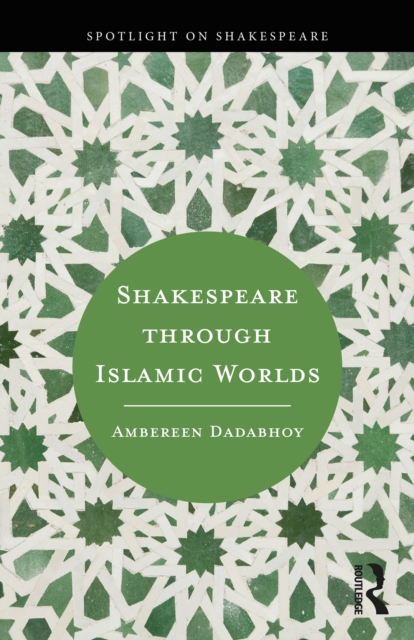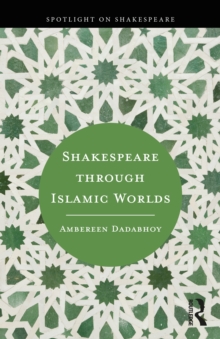
Shakespeare through Islamic Worlds PDF
by Ambereen Dadabhoy
Part of the Spotlight on Shakespeare series
Description
Shakespeare through Islamic Worlds investigates the peculiar absence of Islam and Muslims from Shakespeare's canon. While many of Shakespeare's plays were set in the Mediterranean, a geography occupied by Muslim empires and cultures, his work eschews direct engagement with the religion and its people. This erasure is striking given the popularity of this topic in the plays of Shakespeare's contemporaries.
By exploring the limited ways in which Shakespeare uses Islamic and Muslim tropes and topoi, Ambereen Dadabhoy argues that Islam and Muslim cultures function as an alternate or shadow text in his works, ranging from his staged Mediterranean plays to his histories and comedies. By consigning the diverse cultures of the Islamic regimes that occupied and populated the early modern Mediterranean, Shakespeare constructs a Europe and Mediterranean freed from the presence of non-white, non-European, and non-Christian Others, which belied the reality of the world in which he lived.
Focusing on the Muslims at the margins of Shakespeare's works, Dadabhoy reveals that Islam and its cultures informed the plots, themes, and intellectual investments of Shakespeare's plays. She puts Islam and Muslims back into the geographies and stories from which Shakespeare had evacuated them. This innovative book will be of interest to all those working on race, religion, global and cultural exchange within Shakespeare, as well as people working on Islamic, Mediterranean, and Asian studies in literature and the early modern period.
Information
-
Download - Immediately Available
- Format:PDF
- Pages:264 pages
- Publisher:Taylor & Francis
- Publication Date:29/02/2024
- Category:
- ISBN:9781000999686
Other Formats
- EPUB from £20.24
- Paperback / softback from £24.99
- Hardback from £94.99
Information
-
Download - Immediately Available
- Format:PDF
- Pages:264 pages
- Publisher:Taylor & Francis
- Publication Date:29/02/2024
- Category:
- ISBN:9781000999686










